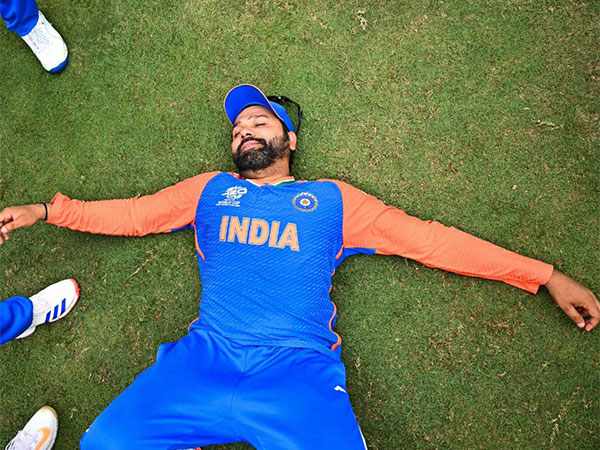ICMR played crucial role in India's COVID-19 fightback: Scientist
Apr 02, 2022

By Shalini Bhardwaj
New Delhi [India], April 2 : With the outbreak of the COVID-19 pandemic, the Indian Council of Medical Research (ICMR)-National Institute of Virology (NIV) Pune along with its chief scientists have been at the forefront to deal with the emerging challenges, including expeditious isolation and detection of various strains and their variants, said top scientist of the ICMR-NIV.
Dr Pragya Yadav, an ICMR-NIV scientist, is among the scientists who detected the first three COVID-19 cases in India. Now that the pandemic in the country has subsided, Yadav said that the situation was back-breaking when the coronavirus infections were being reported in the early stage.
"The preparation for such a large populated country was challenging. We had to prepare for more and that was the time when the ICMR stepped in with its large pool of resources across the country to deal with the situation," the ICMR scientist told ANI.
Following the detection of COVID-19, the medical research centre jumped on a new journey to develop the vaccination against the virus.
"Before isolating the virus in March 2020, we went on research mode so that we could isolate the virus in March. Further, we went on a new journey to develop the vaccine requirements against it," Dr Yadav said.
She further informed that ICMR-NIV Pune started preparations to develop the testing system with the National Influenza Centre when the cases were rising in China.
"As soon as China reported their cases and it was rising, ICMR-NIV Pune started the process of testing system with the National Influenza centre which is always at the forefront of dealing with respiratory diseases. As soon as we detected the first few cases with the arrival of the Wuhan student who arrived in Kerala, we got to know that the pandemic is coming to the country," she added.
Meanwhile, ICMR also worked on the strategies of 5Ts -- test, track, trace, treat and technology to expand and diversify the testing capacity for detecting COVID-19 infection to effectively mitigate the effect of the pandemic.
Dr Pragya Yadav also explained how she struck balance between the research work and personal life during the COVID-19 pandemic.
"I used to talk to my children after coming back home. They used to request me to invent the vaccine against COVID-19 so that they can resume their offline classes. So, they always supported and motivated me," she stated.
The coronavirus or COVID-19 had brought life to a standstill in almost every part of the world. The virus, which originated in central China's Hubei Province, claimed numerous lives so far and continues to adversely affect more than 150 countries globally.
The first case of COVID-19 was reported in Hubei's Wuhan city in December 2019.
An article in the American magazine 'National Review' highlights how China withheld information that proved detrimental to the COVID-19 fight. The coronavirus that jumps from an animal species to a human being probably began at the Chinese 'wet market.'
















